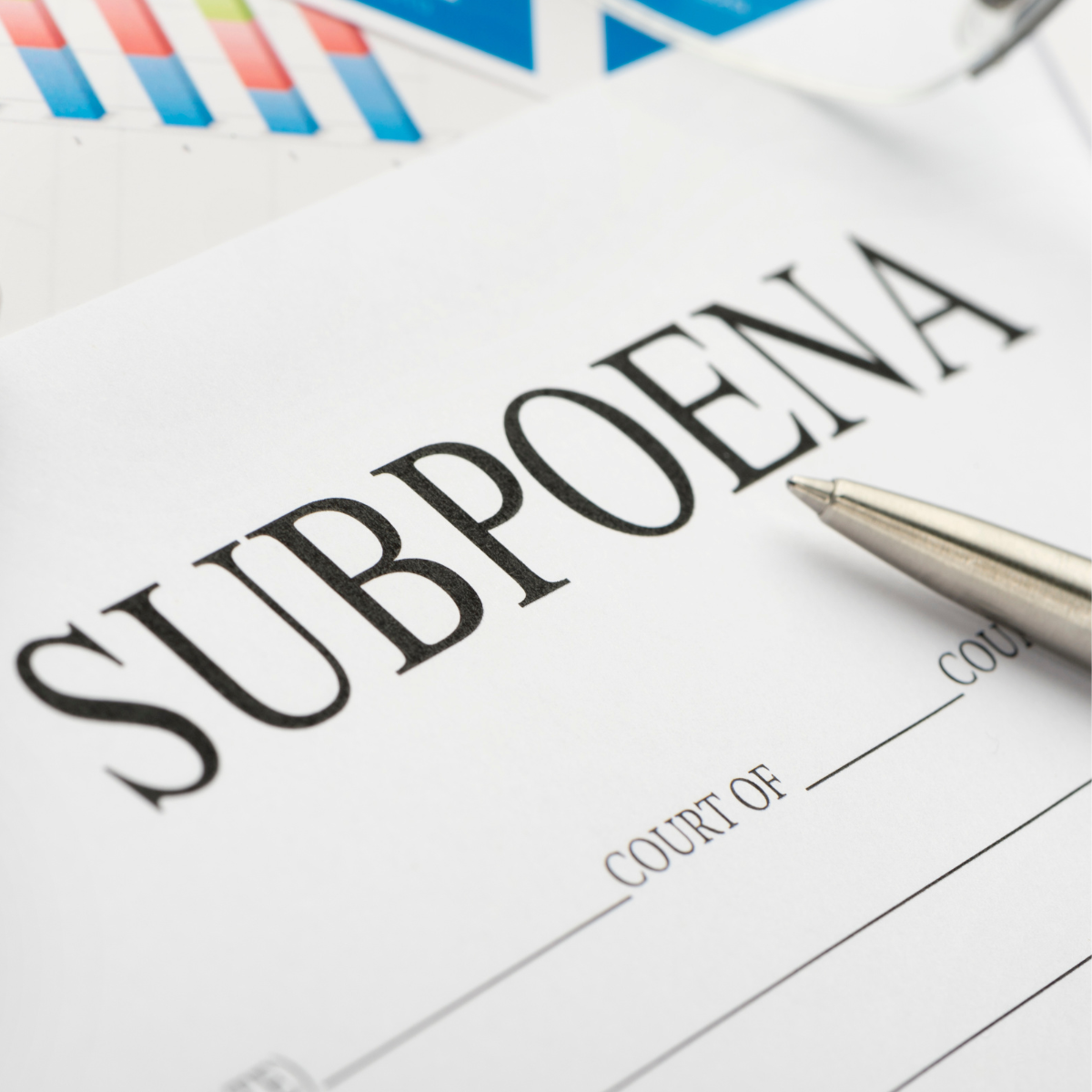 May 28th, 2024
May 28th, 2024Responding Appropriately to Subpoenas
You’re going through your e-mails and find one from an attorney’s office. When you open it, you find it has a subpoena attached seeking records and directing you to appear in court four days from now. Well, that’s a fine way to start a Monday.
There are a lot of misconceptions about subpoenas, fueled by their very official appearance and the language typically appearing on them indicating they are orders of court, and that failure to comply can lead to penalties for contempt. Blindly responding to subpoenas for records can present real pitfalls for school districts.
Few people realize that unless they have actually agreed to receive a subpoena by other means, generally a subpoena must be hand delivered – at least to someone at their home or place of business. E-mail is never a permitted means of service (again, unless the recipient has specifically agreed to receive service by e-mail). If a subpoena is not properly served, it has no more force than a blank piece of paper. The reason attorneys often try to sneak subpoenas through by e-mail or regular mail is that process servers cost money, and actually effectuating personal service is not always a straightforward process.
So, should you simply ignore a subpoena sent by regular mail or e-mail? No. For one thing, if someone in your organization previously received a copy of the subpoena at the office, mailing may complete the procedure for serving the subpoena. For another, when the attorney who sent the subpoena fails to get a response, he or she may follow up with proper service of the subpoena, and you may have missed an opportunity to negotiate a less-burdensome response, perhaps also avoiding the need to have someone appear in court with the records. Your attorney will be able to advise you whether the subpoena was properly served, and will be well-positioned to reach out to the other attorney to find out what he or she really needs out of the mountain of records typically listed in a subpoena.
Moreover, in New York, a subpoena for records from a school district (or other governmental entity) generally must be signed by a judge, a district attorney (in a criminal case), or an authorized administrative hearing officer (in certain matters). If a subpoena for records comes in that is signed only by an individual attorney, you should consult with school counsel before responding.
There are also categories of records that you should be careful before producing, even in response to a validly signed subpoena. The obvious example for school districts is educational records protected by the Family Educational Rights and Privacy Act (FERPA). Such records can be produced when written consent of a student’s parents (or of an adult student himself or herself) is provided, with or without a subpoena. Note, however, that a consent for the release of a limited category of records, like a medical records authorization, won’t do.
Absent written consent from the parents or adult student, even a “lawfully issued” subpoena does not allow a school district to simply go ahead and produce student records, unless one of the exceptions under FERPA applies. These exceptions are too elaborate to review here and school counsel should be consulted to determine whether any apply to your case. Where none of the other exceptions apply, under FERPA, when a subpoena is received that was signed by a judge, the parents or adult student must be given notice by the school district before the records are produced, and a reasonable time to seek protective action. Again, school counsel can help guide you in this process.
There are also categories of records that a school district cannot be forced to produce, even pursuant to subpoena. The most familiar example is attorney-client privileged communications. That doesn’t mean, however, that any communication or document exchanged between you and your district’s general counsel can be withheld. Determining whether a particular document is privileged can be a nuanced inquiry requiring familiarity with the law that has developed around the attorney-client privilege.
Similarly, employee medical records – especially those presented to justify requests for accommodation of disabilities – are restricted from disclosure by federal regulation and state law, even in the face of an otherwise lawful subponea.
When faced with a subpoena seeking school district records, including records pertaining to its students, it is prudent to reach out to your district’s legal counsel for guidance. This may help you to avoid missteps, minimize the ultimate burden to the district of producing records and, when the subpoena also requires a court appearance, possibly eliminate the need for someone to appear in court on behalf of the district.




